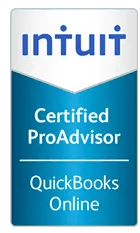Do You Qualify for the Home Office Deduction?
Renee Daggett • July 13, 2021
Has your friend, neighbor or colleague told you that if you take the home office deduction, it will be a “red flag” to the IRS that will trigger an audit? Well, that is just not true! In order to claim the home office deduction, you MUST QUALIFY.To qualify, you are required to meet 2 tests: regularly used and exclusively used for business.
When you know the rules, there should be no fear around taking a deduction that you qualify for. If you use part of your home for business, you may be able to deduct expenses for the business use of your home. The home office deduction is available for homeowners and renters.
There are two basic requirements for your home to qualify:
1- Regular and exclusive use.
2- Principal place of your business.
Regular and Exclusive Use
: this test is clear – You must regularly use part of your home exclusively for conducting business. For example, if you use an extra room to run your business, you can take a home office deduction for that extra room. Occasional or incidental business use does not meet the test. There is no requirement that the business portion of a room be physically separated by a wall or partition. But, any personal use of the space, no matter how small, means that it is not exclusive. There are two exceptions: storage space and daycare facility.
Principal Place of your Business:
The key issue is to determine your PRINCIPAL PLACE OF BUSINESS.
You can have several offices.
Your home can qualify as a principal place of business if:
•The office is used regularly and exclusively for administrative or management activities (billing clients, keeping books, ordering supplies, setting appointments, writing reports)
•There is no other fixed location where the taxpayer conducts these activities
Meeting Clients In Home:
A business use of the home deduction is allowed if the taxpayer meets clients in their home. For example, if an attorney works 4 days a week in his downtown office and 1 day at his home office, he can deduct the home office if he meets with his clients there too. It will qualify for the deduction, even though it is not the principal place of business.
The best thing about qualifying your home as the principal place of business is that the miles that you drive from your home to the first business stop is now deductible. If your home is not the principal place of business, your first stop is considered commuting and not deductible. The easiest way to determine the business percentage is to take the total square footage exclusively and regularly used for business and divide that by the total square footage of your home.
Then, you can deduct the following categories on your return for the business percentage:
•Mortgage interest
•Rent
•Property taxes
•Utilities (gas, electricity, garbage)
•House insurance
•Security system
•Home maintenance/repairs
•Depreciation (straight line method over 39 years)
Side Note
: Lawn care/landscaping expenses are not deductible according to the IRS regulations. However, the Tax Court allowed the deduction where the taxpayer’s clients regularly visited the taxpayer’s home office and where the taxpayer was a daycare provider and the children used the lawn as a play area. |
|
Home Office Deduction What-if's:
If you painted the office area only, that cost would be 100% deductible. This is called direct expenses. However, if you paid for garbage for the home, only the business percentage used is deductible which is called indirect expenses. |
|
|
If your total income is less than your total expenses, your home office deduction for certain expenses will be limited. However, these deductions can carry over the next year. Be aware of that carry over number if this happens in your situation.
If you take depreciation on your home office and you sell your home, you have to “recapture that amount”. What this means is that the amount you deducted for depreciation reduces your ordinary income – this is good. But when you sell your home, that amount will increase your capital gains. The capital gains rate is typically less than your personal income tax bracket.
Years ago, many tax preparers would never take the home office on an LLC, S-corp or C-corp return. If they did, it would be a Schedule A deduction as an employee, which is not a great deduction due to the 2% limitations. However, now some preparers are taking the home office for these entities. The only thing I recommend is not to take mortgage interest or real estate taxes. Only take the business portion of rent, utilities and insurance.
So…do you qualify?
If so, take the deduction, reduce your taxes and don’t worry about that “red flag” because if audited, there will be no change on your return because you know the rules!
|
|
|
I will talk about the following topics:
• 2 things you need to do to qualify for a home office
• How it affects each entity…sole proprietors get more than S-corps and C-corps
• How to pay for the home office expenses
• What expenses qualify as a deduction
|
|




















